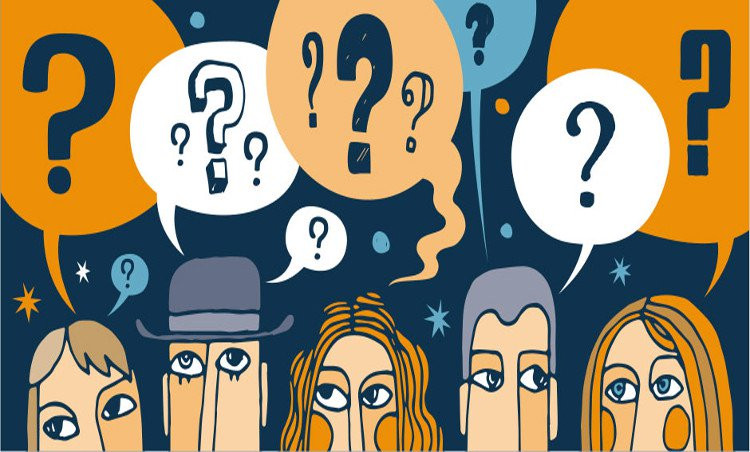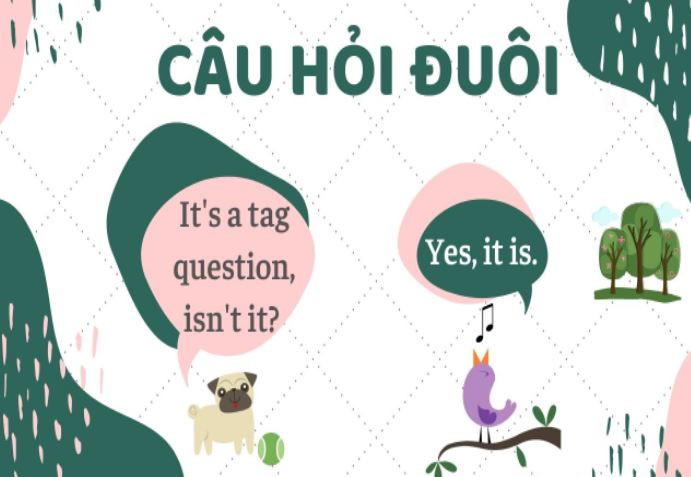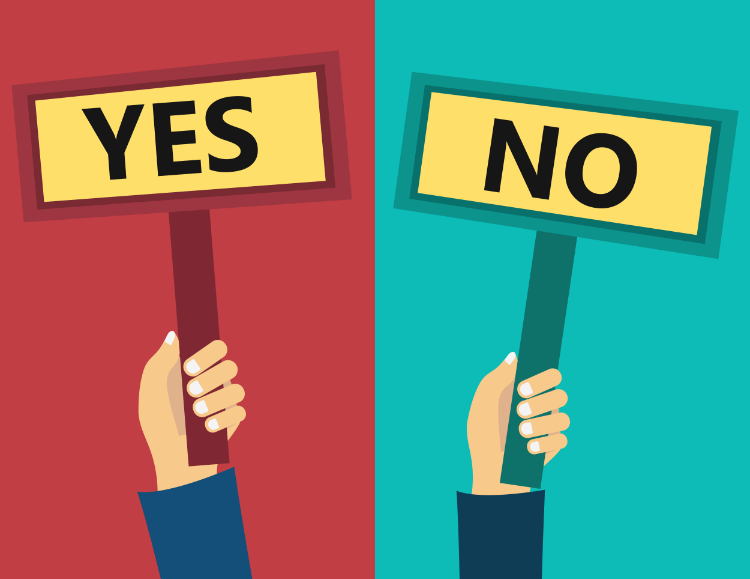Everything you need to know about questions in English

Questions are an indispensable part of English. Besides questions with the purpose of obtaining information, some other types of questions have the effect of verifying or simply an invitation...
Each question will have a different structure and function. This article, will summarize all the knowledge about types of questions in english helps you understand and use them fluently in communication as well as conquer seemingly "difficult" grammar tests.
1. Yes/No questions
– Defining question: A question with an answer form of yes (Yes) or no (No), usually starting with an auxiliary verb (To Be, Do, Have,…) or a modal verb (Will, Can, May, Should,…). The purpose of this question is for the questioner to confirm information from the listener.
For example:
-
Was Tom sick yesterday?
-
Have you seen this play before?
-
Are you married?
-
Will the committee decide on the proposal today?
– Negative questions: Formed by adding not (n’t) after the auxiliary verb to express surprise or when the speaker is expecting the listener to agree with him…
For example:
-
Isn’t he a teacher?
-
Haven’t you been to Paris before?
-
Isn’t it a lovely day?
- Don’t you like chocolate?
2. Question to get information (Wh- Question)

Types of questions in English, the informational question type is the most common type. The answer cannot be as simple as "yes" or "no" but requires the listener to provide more information. They often use question words, divided into the following 3 types:
– Subject questions (Who, What): This is a question when you want to know the subject or subject of an action.
| Who / What + verb (V) + …… ? |
For example:
-
What is your name?
-
Who called me yesterday?
– Object questions (Using Whom, What): These are questions used when you want to know the object or object of the action.
Whom/ What + auxiliary verb (do/ did/ does) + S + V + …..?
For example:
-
What did Tom say with his father?
-
Whom does Hien know can say Japanese?
– Question complement (Using When, Where, How and Why): This type of question is used when you want to know the place, time, reason, and method of an action. This is also the most common form of Types of questions in English.
When/ where/ why/ how + auxiliary verb (be, do, does, did) + S + V + complement (+ object)?
For example:
-
How did Lan go to school?
-
Why did she wake up so early?
– Choice questions (Using Which): This type of question is used when the questioner wants to know about the listener's choice or solution regarding a problem or event:
Which + noun (N)+ verb (V) + …… ?
Which + noun (N) + auxiliary verb + S + verb (V)?
For example:
-
Which pencil is yours?
-
Which girl do you want to date with?
3. Complex Question

– Complex questions consist of two components connected by a question word, with the clause following the question word being the question part. Complex questions are applied to declarative sentences to indirectly quote the question:
S + V + (Question word + S + V)
Question words: (Wh-Question): What, When, Which, Where, Why, Who, How,…; (Yes/No question): Instead of moving the verb to-be or the auxiliary verb to the front, we use Whether, If (~Whether…?)
For example:
-
The students still can’t figure out why their teacher gave them bad marks last week.
-
John hasn’t know where he will want to go at the weekend.
-
I don’t know whether he is good at learning English.
– A complex question is a question, applying the following sentence pattern:
| Auxiliary verb + S + V + Question word + S + V |
For example:
-
Do you know what he said?
-
Could you tell me how much it cost?
Note: In special cases, the question word is a phrase such as: Whose + noun, How many, How much, How long, How often, What time, What kind,... can also be applied similarly.
For example:
-
How often do you visit your parents?
-
Can you tell me how far your school is from your house?
4. Tag question 
– Types of questions in English, tag questions are used when the person asks question make a proposition (main clause) but are not completely sure about the truth/falseness of that proposition. Therefore, this type of question also has the function of verifying the given proposition.
-
He should stay in bed, shouldn’t he?
-
It’s raining now, isn’t it?
-
You won’t be leaving for now, will you?
Note: Tag questions are divided into two components separated by commas according to the following rules:
-
If the main clause is affirmative, the ending is negative and vice versa.
-
The tense of the verb in the ending must match the tense of the verb in the main clause.
-
Subjects are indefinite pronouns that refer to people (everyone/ everybody/ someone/ somebody/ anyone/ anybody/ noone/nobody/ neither…) then the ending should be “they”
-
Subjects are indefinite pronouns that refer to things (something/everything/anything, nothing), ending with is “it”
- If the subject in the main clause is negative (no one/ nobody/ nothing) or the main clause contains a negative adverb (never/rarely/ rarely/ occasionally,...), then the ending must be affirmative.
+ Some special cases you need to remember:
|
The first part |
Question clause |
|
Verb Wish |
Verb May |
|
Verb Must |
Verb needn't |
|
Verb Let |
Verb Shall |
|
Exclamation |
Use the verb “to be (is, am, are) + pronoun” |
|
The first sentence has I + verbs: think, believe, suppose, figure, assume, fancy, imagine, reckon, expect, seem, feel, seem + subordinate clause |
A racing question is a question of a subordinate clause |
|
I am |
(Clause), aren’t I? |
Above are the basic structures and usage of types of questions in English. Remember their structure and usage to apply quickly and accurately every time you review for the TOEIC exam with TOEIC practice tests!


